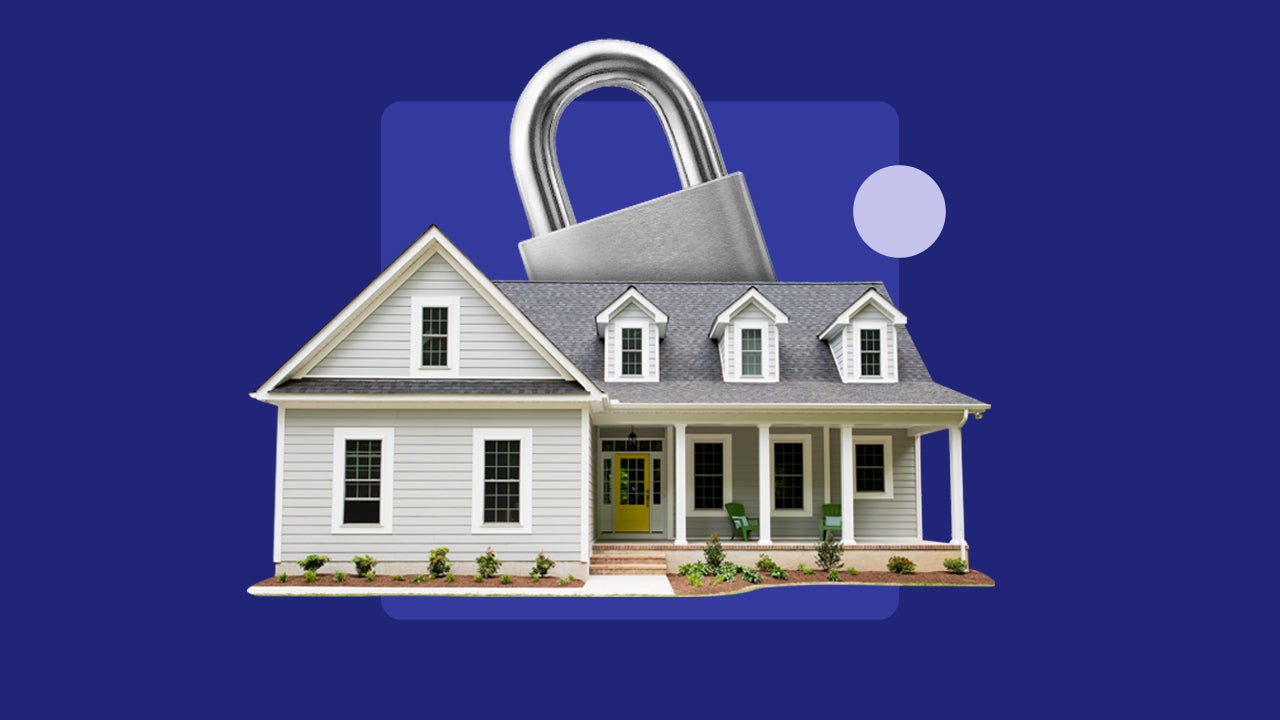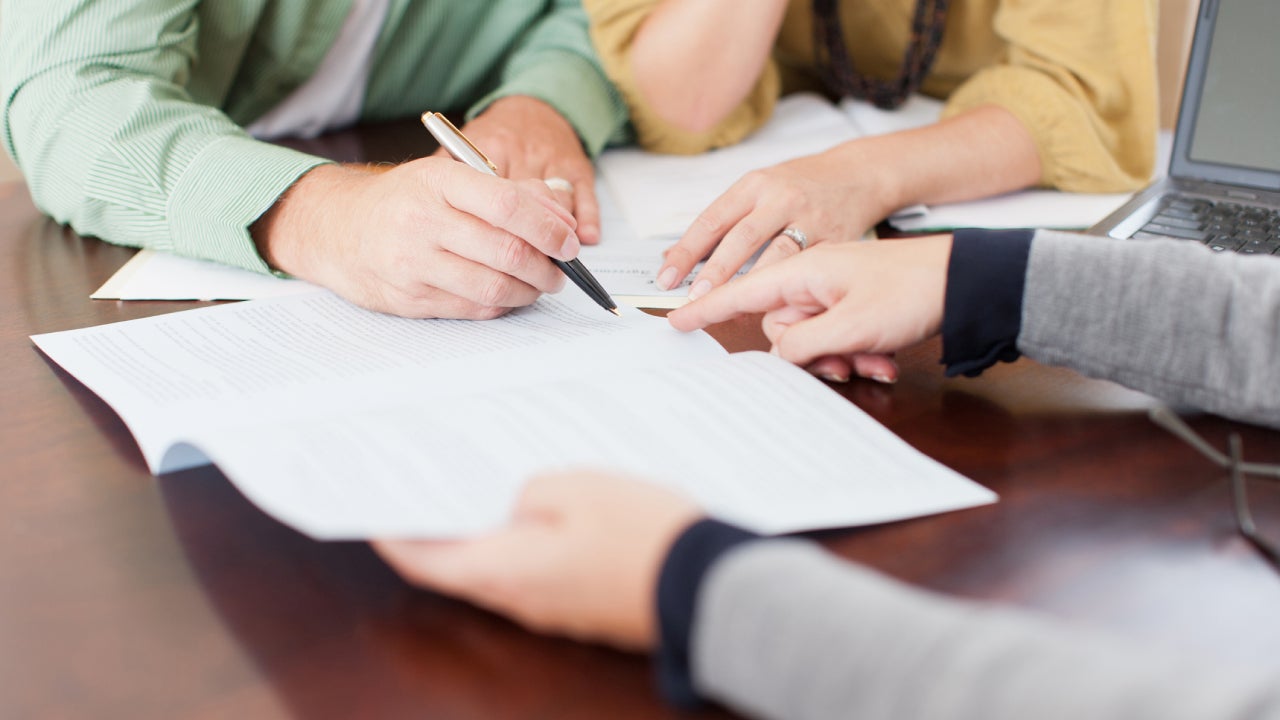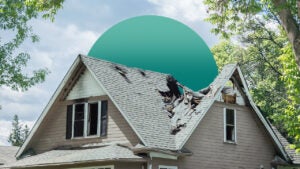Home insurance adjusters: what they do and how claims are paid

Key takeaways
- A home insurance adjuster, also called a property claims or insurance adjuster, is responsible for investigating insurance claims.
- Most adjusters are employed or contracted by insurers and don’t charge policyholders for home visits, but homeowners can hire public adjusters as well.
- To dispute a claim, you can hire an independent adjuster who only works for you.
When you file a home insurance claim, you will likely interact with a home insurance adjuster. A home insurance adjuster is the person who looks into your insurance claim and figures out a fair settlement. The process a home insurance adjuster uses and the amount of time they spend at your home can vary depending on the type of claim. Understanding the work of the adjuster can help you give them all the details they need to move the process along efficiently.
What is a home insurance claims adjuster?
When you file a home insurance claim, the insurance company will send a home insurance claims adjuster to investigate the details of the claim. A home insurance adjuster is a professional who inspects any damage claimed and figures out exactly how much you are owed for the claim. The adjuster may be an employee of the insurance company or an independent contractor.
Home insurance adjusters work to make sure you receive a fair settlement for the damage or loss you’ve experienced on your property. They take time to evaluate the damage and calculate the true cost to you, the homeowner.
It’s important to know that adjusters may deny a claim if it doesn’t meet certain criteria. Your job is to understand whether or not you should file the claim in the first place. Also, keep in mind that the claims you make may lead to an increase in your home insurance rates.
What is the difference between an independent adjuster and a public adjuster?
You may end up working with a few different kinds of claims adjusters. When you work with an independent adjuster, you are working with an adjuster contracted by the insurance company. An independent adjuster does not work as an employee of the home insurance company. Their job is to be an unbiased evaluator of your claim. In some cases, the insurance company may also have home insurance adjusters who are their employees.
As a homeowner, you can also hire a public adjuster. These claims adjusters are not connected to the home insurance company at all. They will assess the damage or loss of your claim just like any other adjuster, but they can also advocate for you to the insurance company. It may be a good idea to hire a public adjuster for a second opinion, especially if you feel the assessment made by the independent contractor was not fair or correct.
What does a home insurance adjuster do?
The process may look different for each home insurance adjuster and claims process. However, here’s what you can generally expect a home insurance adjuster to do:
- Come to your house and assess the damage. The adjuster will inspect the damage, and they will likely collect evidence and take pictures. They will also keep notes about your case.
- Take a look at collateral property. Once they look at the main area of the damage, they may look further at other areas of the property they think could be connected to the damage. For example, if you experience a theft, they may check windows or gates to see if they have been tampered with.
- Ask questions. They may have follow-up questions for you after inspecting everything. Questions may center around the incident or the structural integrity of your home, so they can figure out when the damage happened.
- File a report. Once the insurance adjuster makes all their observations at your property, they will compile all the information into a report. The report will also let you know the claim amount the insurance company will grant.
The process of examining the damage and asking questions may take one to two hours, depending on how extensive it is. Some adjusters may file a report on the spot, but typically it may take some extra time to communicate with the insurance company and you to finalize your settlement details before they file the report.
How to prepare for a home insurance adjuster’s visit
When you file a claim, your home insurance company will typically set up an appointment for a home insurance adjuster to visit. Knowing what to expect from home insurance adjusters can help you get ready. Here’s a brief step-by-step guide to preparing for a home adjuster visit:
- Document the damage: Before the adjuster arrives, you should make sure to document the exact time and date of the incident and write down any other details that may be helpful. While the adjuster will likely take their own photos to document the damage, taking photos of the damage or loss can be helpful for your records.
- Collect documents: Collect documents that the adjuster can use for evidence as part of the decision-making process. Some of the documents you may want to have ready are witness statements and contact information, photos or videos taken of the damage, and receipts or estimates for repairs or for the items that were lost, stolen or damaged.
- Plan to be home during the visit: Although you are not required to be present for the visit, it’s a good idea to be home to answer questions and make sure the adjuster does not overlook anything. You may want to have some estimates ready to compare to the adjuster’s findings.
- Ask about next steps: Before the adjuster leaves, be sure to ask what you should expect as the next steps. Most states require insurance companies to respond to a claim filing within a specific period of time, so ask the adjuster how long it typically takes to receive a response about your claim.
What to do after a home insurance claims adjuster’s visit
Once the insurance adjuster leaves, you will probably have some “homework” to do. It is essential to act quickly and respond to any requests as soon as possible. Delayed responses to adjuster questions or follow-up requests may delay the claim payout process.
- Submit other requested documents and paperwork: If you’re asked to fill out paperwork or provide documents, complete the forms and return them as quickly as possible so your claim isn’t delayed. For example, you might be asked to provide a receipt showing when you last replaced the roof or had the heating system inspected.
- Keep an eye out for emails and calls: Make yourself available by phone, text or email to stay in the loop about your claim. You might receive updates or be asked to provide further information so it’s important to keep the lines of communication open.
- Follow up: Most insurance adjusters will give you a timeline of the claims process, but keep in mind that each claim is different so the amount of time it takes to receive a payout can vary. If you haven’t received an update in a while, you might want to reach out to the adjuster and see if they need any additional information from you.
How much does a home insurance adjuster cost?
In most cases, a home adjuster works for the insurance company. They do not charge you a fee because the carrier pays them.
If you choose to hire a public adjuster, they typically take a percentage of the claim (around 10 to 15 percent) instead of an upfront fee. If your home burned down in a fire and you dispute your insurance carrier’s offer and eventually agree to a payment of $300,000 to rebuild, the public adjuster could earn a fee of $30,000 to $45,000. Although it sounds high, the fee may be worth it if you have trouble getting a fair settlement offer from the insurance company.
How to dispute an insurance claim
If you don’t agree with the amount the insurance company gives you for a settlement, you can usually dispute an insurance claim. This process may take extra time, but it can be worth it if you get extra damage costs covered.
When you want to dispute a claim amount or a claim denial, don’t accept the initial offer. Instead, talk to the home insurance company’s customer service team to determine their claim dispute process. You can also request a written evaluation of how they determined the settlement. Then, follow the steps given to file a dispute of the claim.
While you can dispute a claim without hiring a public adjuster, in some cases it may be beneficial to hire one to get a second opinion. You can show a public adjuster the claim breakdown provided by your insurance company.
Tips when dealing with a home insurance adjuster
Understanding how to successfully deal with a property claims adjuster could help maximize your settlement or reimbursement. Here are three tips:
- Record and log conversations with the adjuster. You’ll likely cover several talking points when a home insurance adjuster arrives and you may not be able to remember all of the details. Although your adjuster will be taking notes or recording the dialogue, taking your own notes on important conversation points can help you remember what was discussed. If you plan to record conversations, be sure to disclose this information to the adjuster ahead of time.
- Avoid signing any documents from the home insurance adjuster too early. If your home insurance adjuster asks you to sign any documents, be sure you understand exactly what the documents include. If you need some time to review the documents or want to consult someone else beforehand, let your adjuster know when you expect to get back to them.
- Consider hiring a public adjuster. When negotiating with your home insurance adjuster, negotiations may stall. If you are concerned that your insurance company is acting in bad faith, hiring a public adjuster or a lawyer can help provide peace of mind that someone is working on your behalf to keep the claims process moving forward.
Frequently asked questions
Why we ask for feedback Your feedback helps us improve our content and services. It takes less than a minute to complete.
Your responses are anonymous and will only be used for improving our website.
You may also like


Escrow insurance: What is it and when do you need it?

Mortgage insurance vs. homeowners insurance: What’s the difference?

What is homeowners insurance and how does it work?


